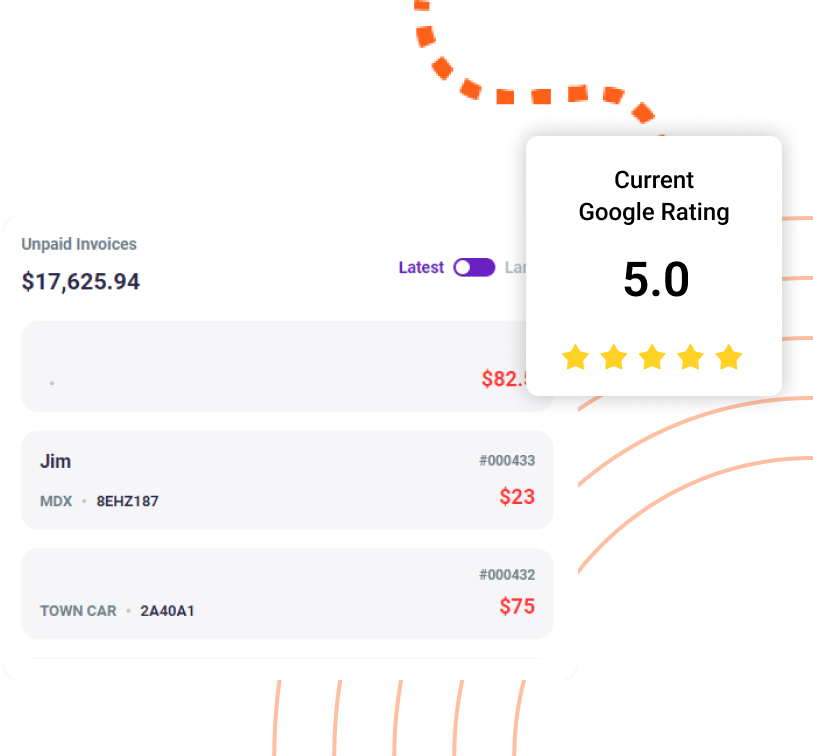Have you ever been confused about which software you should choose?
Are you still struggling to find the best POS system for an auto repair shop?
No need to be worried anymore.
Because we are going to make this task very easy for you here!
The shift towards advanced tools and systems indicates a new era focusing on efficiency and precision. The POS system for mechanic shop goes beyond basic transactions. It integrates into the core functions of repair businesses. Pos system offers a wide range of features to simplify operations and increase customer satisfaction.
So, if you want to drive your auto repair shops into a tech-driven future, then you are at the right place.
In this blog, we are discussing the pros and cons of POS systems. We also guide you to choose the best POS system for your shop.
Let’s dive in!
Understanding POS Systems for Mechanic Shops
Point of Sale (POS) systems have gained prominence, reshaping how mechanic shops operate in the modern auto repair world. Tailored for the unique needs of mechanic shops. This tech duo, including smart software and super hardware, is here to simplify and optimize various aspects of the automotive repair business.
The POS system is the ultimate multitasker for your mechanic shop. It’s a clever combo of tools that make handling transactions, keeping tabs on inventory, and delighting customers more manageable.
Cool Features of Mechanic Shop POS Systems
- Service Management
- Inventory Control
- Customer Relationship Management (CRM)
- Appointment Scheduling
Why Streamlining Matters in Auto Repair
The automotive repair industry is represented by its complex workflows, varied services, and the constant demand for precision. Streamlining processes is necessary and helps mechanic shops stay ambitious and provide exceptional service. Here’s why:
Efficiency Boost:
- Automating daily tasks means less manual work and more focus on fixing cars.
Happy Customers:
- Smooth processes mean happy customers. Quick services and personalized communication are the secrets to customer satisfaction.
Smart Decision Making:
- The auto shop POS system gives insights, helping you make clever inventory, services, and business strategy decisions.
Keeping Up with Trends:
- The auto repair world is evolving, and you want to grow with it. A streamlined process means you’re ready to embrace new tech and services without missing a moment.
Pros of Adopting a Mechanic Shop POS System
1. Efficiency and Time Savings:
Time is money, and you are most likely wasting time with traditional paper and pen.
Automotive POS software takes the manual headaches out of tasks, leaving you more time to wrench and less time buried in paperwork. Say goodbye to those pesky manual errors and welcome faster operations.
Moreover, you can generate pre-set tasks, speeding up the entire process. You transition from a blank page to a more automated workflow with a few clicks.
2. Inventory Management:
One of the significant benefits of a POS system is Inventory management. Have you ever felt sinking when you realize you’re out of a crucial part or your shelves are overflowing with extras? An auto repair shop software tracks every nut, bolt, and widget. It ensures you always have what you need and never get too much load.
Cloud-based POS systems deliver credentials and help you manage inventory remotely. Small business owners can take advantage. They keep their stock in check and provide services with limited help.
3. Customer Satisfaction:
Many business owners understand that keeping a current customer is more cost-effective than reaching new business. POS system for mechanic shop can incorporate a customer loyalty program that benefits clients. Such a program often boosts repeat visits and increases average repair orders.
Automotive repair software works as your co-pilot in building and maintaining these relationships. With CRM features, you can keep detailed customer records, know their preferences, and offer a personalized touch to every interaction.
4. Sales Reporting and Analytics:
Traditional cash registers need accountants to sift through hundreds of receipts. But a Mechanic Shop POS system generates and records transactions for convenient later checking.
Auto repair software equips you with tools for data-driven decision-making. The POS automatically generates reports containing vital information using the store’s transaction history. This feature aids managers in obtaining an overview of their business performance. For instance, reports reveal common sales trends or highlight areas of unnecessary overspending, enabling managers to take appropriate actions. It helps guide your shop towards growth.
5. Integrated Payment Processing:
Handling payments in your mechanic shop became much smoother with integrated payment processing. The convenience simplifies everything – from settling bills to spotless financial records.
Say goodbye to manual errors or confusion between different systems. This approach ensures the amount due is right on the money, giving you precise transaction details. Plus, your customers appreciate the efficiency, improving their experience in your shop. These systems meet industry standards, acting like a digital fortress for every transaction. So, when handling payments, integrated processing is a transformation for a more streamlined and secure financial trip in your auto repair shop.
6. Multi-Store Systems:
With Multi-Store systems, you can run many auto shops. Managing several locations can be tricky, but Multi-Store Systems simplify everything. Imagine overseeing inventory, services, and transactions from one central hub. No more running around to check stock or coordinate operations – it’s all at your fingertips.
The POS system creates a virtual bridge between your locations, allowing you to share updates, track performance, and coordinate services. It provides information across all locations. Dive into analytics to understand what’s working well in one shop and replicate those successful strategies in others.
Cons of Adopting a Mechanic Shop POS System
1. Initial Cost and Learning Curve:
Up and running a Mechanic Shop POS system requires an initial investment in hardware and software.
For cloud-based systems, POS software costs can be $0 to more than $200 monthly. A one-time fee starting at around $1000 for legacy systems.
The upfront cost could be a challenge for smaller shops with limited budgets. Moreover, staff members require time to familiarize themselves with the new system, causing a temporary efficiency drop during the learning curve.
2. Dependency on Technology:
The reliance on technology brings both possibilities and challenges. System downtime can pose a significant concern, disrupting regular operations. Any pause in the system can impact customer service and workflow, whether due to technical glitches or software updates. Moreover, ongoing technical maintenance is essential to keep the system running smoothly, adding another dependency layer on technology.
3. Customization Challenges:
Every mechanic shop is unique, and generic solutions might not fit all needs. Mechanic Shop POS systems may have limitations in customization, restricting the ability to tailor the system to specific business requirements. Shops could face challenges with distinct processes or specialized services because of a lack of flexibility.
4. Security Concerns:
As with any system handling customer data, security is a significant concern. Mechanic Shop POS systems store sensitive customer information and transaction data. It’s essential to keep this data secure to maintain customer trust and comply with privacy laws. Auto repair shops must invest in robust security measures because any security violation could have severe consequences.
5. Maintenance Costs:
Beyond the initial setup, ongoing maintenance is a continuous commitment. Continuous expenses such as system updates and support fees add to the overall maintenance cost of a POS system. These ongoing financial commitments should be considered in the budget. And unforeseen maintenance needs can strain the financial resources of the shop.
How to Choose the Right POS System for Your Mechanic Shop
Selecting the ideal Point of Sale (POS) system for your mechanic shop is most important – it should fit just right. Here’s a guide to guide you through the selection process, ensuring a match for your shop’s unique needs.
1. Scalability:
Consider the future growth of your mechanic shop. A scalable POS system grows as you do. Whether you plan to expand services, open new spots, or cater to a growing customer base, a system that scales easily ensures your tools evolve with your needs.
2. Features that Matter:
Think about your shop’s specific needs and the features that genuinely matter. From service management to customer relationship management (CRM), ensure the POS system covers the essentials. It’s a customized toolbox, and each feature should be valuable for boosting efficiency and customer satisfaction.
3. User-Friendly Interface:
Nobody wants a system that feels like decoding a car’s engine manual. Choose a user-friendly interface that simplifies tasks for your staff. A reflexive design reduces the learning curve. It minimizes disruptions in your daily operations.
4. Reliability and Support:
A reliable POS system is a must for your shop’s daily operations. Look for a system with a solid track record for stability and minimal downtime. Additionally, check the support services offered. A responsive support team can help when you face issues or need help with the system.
5. Cost Considerations:
Consider your budget carefully, acknowledging that the total cost of ownership extends beyond the initial setup. For instance, consider ongoing expenses like maintenance, updates, and support fees. This comprehensive understanding ensures an informed decision aligned with your shop’s financial budget.
Finding the best auto repair software is crucial because it smoother everything. Consider these factors as your guide. These factors ensure that the POS system you choose becomes a valuable asset.
Conclusion
We’ve explored the upsides and downsides of a tailored Point of Sale (POS) system. It enhances efficiency and customer experiences but comes with various challenges.
As we look at features, it’s clear that choosing the right POS system requires careful thought.
Acknowledging challenges, from upfront costs to ongoing commitments, is vital. Adopting a POS system for mechanic shop is a strategic move. It integrates a solution perfectly into your daily operations.
Consider the unique needs of your shop, and your choice becomes an investment in the success of your auto repair venture.
FAQ’s
What is an automotive POS system?
An automotive POS system is a customized digital assistant tailored to the auto repair industry. This system simplifies the entire operation, from handling order requests and invoices to filling out payment processes and keeping your inventory in check. Its simplicity meets efficiency, making managing an auto repair shop feel like a well-organized routine.
How to choose a POS system for a small business?
Essential factors to consider when choosing a POS system
- Consider scalability for future growth
- Prioritize user-friendliness for staff adoption
- Ensure basic features like order management and payment processing
- Check integration capabilities with existing tools
- Evaluate the overall cost, including initial setup and ongoing maintenance





